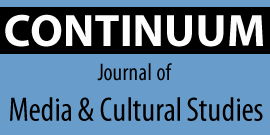Friday 10 June 2016, London South Bank University
A one-day practice/research symposium hosted by the School of Arts and Creative Industries at London South Bank University, with support from the Journal of Media Practice and the MeCCSA Practice network.
Deadline for proposals: Monday 30 April 2016.
end your proposal to: ACIresearch.LSBU@gmail.com
With the proliferation of mobile devices the presence of the screen in everyday life is ever more pervasive, personal and immersive. In the last five years, for example, the tablet has become the must-have device, with over half of UK households (54%) now owning one (Ofcom, 2015). Raised as ‘screenagers’, one in ten (11%) 3-4 year olds now have their own tablet as a pacifier, educational aid and entertainer (Ofcom, 2015). Our urban spaces offer up new forms of interaction as the numbers of screens multiply. Via the screen we navigate an evolving media and cultural landscape that is increasingly interactive, intuitive and always on.
How has the ubiquity of the screen affected broader visual and media culture? How do we imagine life on screen for Generation Alpha? We welcome contributions from practitioners and practice researchers that explore the theme of post-screen cultures/practices. The prefix “post” is used here to refer to the state of being ?after in time or order?, but we are interested in approaches that address screen-oriented cultures/practices past, present and future. Contributions that seek to question, challenge or disrupt existing screen-oriented cultures or practices, or that consider life ?beyond? the screen, are also encouraged.
Possible topic areas include:
- Ubiquitous photography and the networked image
- New screen modalities and spectatorship/audience
- Repurposing and remediation
- Hybridity and Multi-platform practices
- Gaming and gasification
- The Internet of Things and wearable technologies
- Collaborative interactions
- Augmented/Mixed/Hybrid reality
- Virtual reality and immersive environments
- Surveillance, Sousveillance and Omnipresence
- Big data visualisation
- Commercialisation
This symposium will focus on practice research and will feature papers, presentations of practice, screenings and demonstrations. A special issue of the Journal of Media Practice will be devoted to publishing a selection of practice research presented at the symposium. All work accepted for the symposium will be considered for the JMP edition.
Papers/Presentations
We invite papers/presentations of 20 minutes from academics, practitioners, scholars and researchers working in the area of photography, film and video practice, documentary, experimental media, art practice, gaming and multiplatform/ multimedia production, digital technologies, film studies, media and cultural studies, and associated fields and subject areas.
screenings/Presentations/Demonstrations
We plan to arrange screenings, demonstrations and presentations of projects during the symposium. If you would like to contribute by showing work please send a proposal with a description of the work, including format and duration (if appropriate) by the deadline.
ubmissions
Please send your proposal as a Word document or PDF to ACIresearch.LSBU@gmail.com, including the following information:
- Author(s)
- Institutional Affiliation
- Title of Proposal
- 250-word proposal for paper/presentation, or work
- Biography (not more than 50 words)
Please enter the following in the email subject line depending on the nature of your proposal:
- Post-screen Proposal: Paper/Presentation
- Post-screen Proposal: Work
Deadline for proposals: Monday 30 April 2016.
Organisers: Dr Tahera Aziz, Prof Lizzie Jackson and Prof Phil Hammond
Please send your proposal to ACIresearch.LSBU@gmail.com, following the guidelines in the CfP (online here: http://aciresearch.blogspot.co.uk/2016/03/post-screen-culturespractices.html).

 Continuum is now published six times a year by Taylor & Francis.
Continuum is now published six times a year by Taylor & Francis.